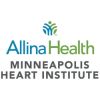Taking Control of Your Heart Health: How Simple Lifestyle Changes Can Prevent Heart Disease
When I first heard the phrase "heart disease," I never thought it would have much of an impact on me. After all, I was healthy, active, and had no major health concerns. But as I dug deeper into understanding the condition and how it affects millions of people every year, I began to realize that heart disease isn't something that only happens to others. It can happen to anyone, and many of us unknowingly have risk factors that we could control with simple lifestyle changes.
For many years, I believed heart disease was something inevitable as we age, a genetic curse, or just a result of living a busy, stressful life. However, after learning more about heart health and speaking to experts, I realized that the road to preventing heart disease doesn't have to be as complicated as it seems. By making small adjustments to our daily habits, we can significantly reduce the risk of developing cardiovascular problems later in life.

Why Heart Disease Is So Common and How We Can Prevent It
Heart disease is one of the leading causes of death worldwide, and the alarming part is that many of the factors contributing to it are preventable. From poor dietary choices to a lack of physical activity, the habits we form can either help or hurt our heart health. In my case, learning that many heart disease risk factors, such as high blood pressure, high cholesterol, and obesity, are largely influenced by lifestyle choices was eye-opening. These are not just "bad luck" situations; they are things we have the power to control.
Atlanta Heart Specialists
atlanta heart specialists
4375 Johns Creek Pkwy #350, Suwanee, GA 30024, USA

1. Healthy Eating Habits: Fueling Your Heart with the Right Foods
One of the first changes I made to improve my heart health was adjusting my diet. I used to think a "good" diet meant eating fewer calories or just cutting out junk food. However, heart-healthy eating is about more than just avoiding unhealthy foods. It's about choosing the right kinds of foods to nourish the body and support heart function.
For me, focusing on a diet that includes plenty of fruits, vegetables, whole grains, and healthy fats made a huge difference. I replaced processed snacks with almonds, avocado, and other nutrient-dense foods. The heart benefits of foods like these are remarkable. For example, foods rich in omega-3 fatty acids (like salmon and walnuts) have been shown to reduce inflammation and improve cholesterol levels, both of which are crucial in preventing heart disease.
Another key change I made was reducing my intake of saturated and trans fats, commonly found in fast foods, baked goods, and fried items. I also started reading food labels more closely and discovered how often these hidden fats sneak into our diets. By focusing on heart-healthy fats like those found in olive oil and nuts, I noticed improvements in my energy levels and overall well-being.
2. Regular Exercise: Strengthening Your Heart from the Inside
If you had told me a few years ago that a consistent exercise routine could significantly lower my chances of developing heart disease, I would have been skeptical. Like many people, I thought that being active meant intense workouts or long hours at the gym. However, the truth is that any form of regular physical activity—whether it's walking, cycling, or even gardening—can be incredibly beneficial for your heart.
When I began incorporating more movement into my day, I realized that exercise not only helped me maintain a healthy weight but also improved my circulation, reduced my stress levels, and improved my overall cardiovascular health. The American Heart Association recommends at least 150 minutes of moderate-intensity exercise per week, which is about 30 minutes, five days a week. Trust me, it doesn’t have to be anything extreme. I started with brisk walks around my neighborhood, and soon enough, I was enjoying runs and strength training as well.
One of the things I appreciate most about exercise is its ability to lower blood pressure and improve cholesterol levels. This means that by exercising regularly, you’re not just getting fit—you’re actively reducing two major risk factors for heart disease. Whether it's through a structured workout or simply staying active throughout your day, your heart will thank you for it.
3. Stress Management: Taking Care of Your Mental and Emotional Health
We all know that stress can affect our minds, but what about our hearts? For years, I underestimated the impact of stress on cardiovascular health. It wasn’t until I experienced a stressful period in my life that I realized just how damaging it could be. Studies have shown that chronic stress can lead to high blood pressure, inflammation, and unhealthy coping mechanisms like overeating or drinking alcohol—each of which can contribute to heart disease.
In my case, learning to manage stress became a top priority. Meditation, deep breathing exercises, and yoga became a daily routine. These simple practices helped me stay calm, focus on the present, and reduce anxiety. Another thing I learned was the importance of getting enough sleep. I used to sacrifice my sleep for work or other responsibilities, but over time, I realized that poor sleep only made me more stressed and less able to manage my emotions effectively. Now, I make it a priority to get a full 7-9 hours of sleep every night, and I notice a huge difference in how I feel mentally and physically.
4. The Power of Prevention: Regular Health Check-ups and Monitoring
Prevention is always better than treatment, and this is especially true when it comes to heart disease. One of the most important steps I took in my journey to better heart health was scheduling regular check-ups with my doctor. Routine visits allowed me to monitor key health indicators like blood pressure, cholesterol levels, and weight. Early detection of risk factors such as high blood pressure or elevated cholesterol gives us the opportunity to take action before these issues become serious.
For example, during one of my check-ups, I learned that my cholesterol levels were a bit higher than they should be. While I wasn’t at a point of needing medication, my doctor suggested lifestyle changes (like improving my diet and exercise routine) to keep my cholesterol levels in check. It was empowering to know that I had control over these factors and could take steps to avoid potential problems in the future.
5. Building Healthy Habits for a Lifetime
Over time, I realized that preventing heart disease isn’t just about making a few changes here and there—it’s about creating lasting habits. This isn’t a one-time fix; it’s a lifelong journey. It’s about making small, sustainable changes that you can stick to and building a healthier lifestyle that you enjoy.
Today, I am proud of the healthy habits I’ve developed, from eating more nutritious foods to staying active and managing my stress. These simple lifestyle changes have not only improved my heart health but also enhanced my overall quality of life. I now have more energy, better sleep, and a greater sense of well-being.
Preventing heart disease doesn’t have to be complicated. With the right mindset and a few small adjustments to your daily routine, you can significantly reduce your risk and enjoy a longer, healthier life. It’s never too late to start making positive changes for your heart. Whether you're just beginning your journey or have been on this path for a while, remember that every step you take toward better health is a step in the right direction.
Take charge of your heart health today. A healthier future is in your hands!






















Deborah Heart and Lung Center
deborah heart and lung center
200 Trenton Rd, Browns Mills, NJ 08015, USA